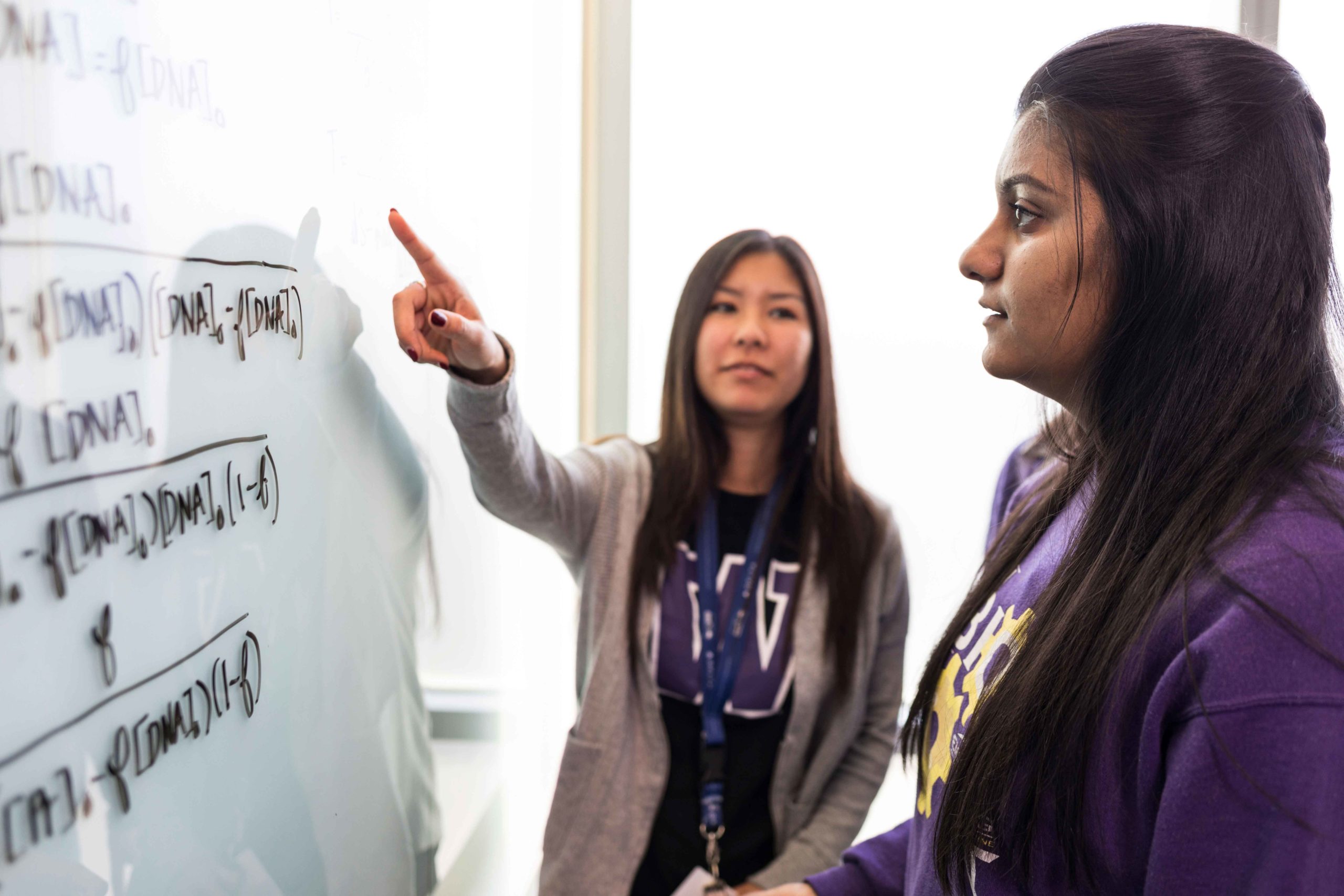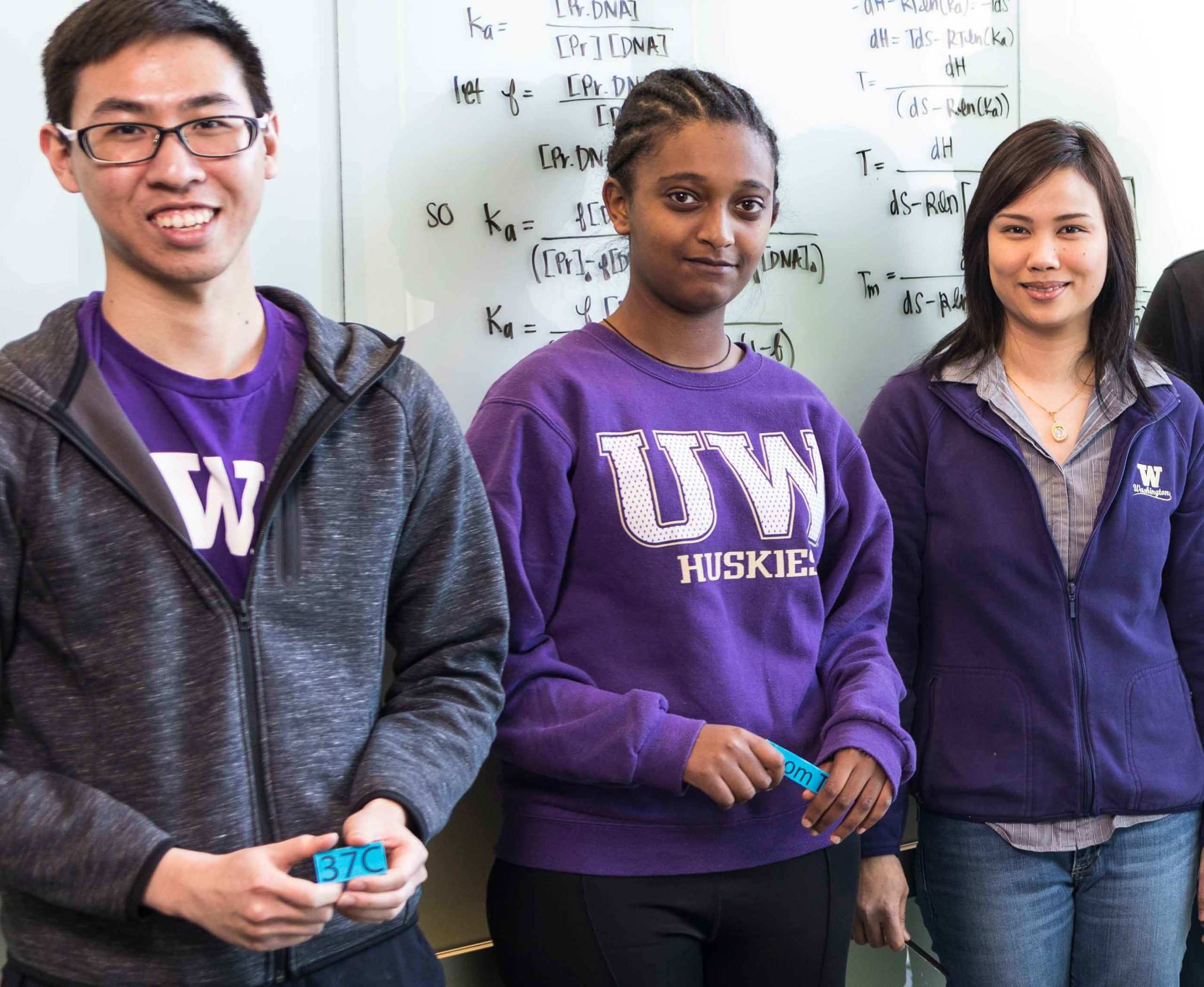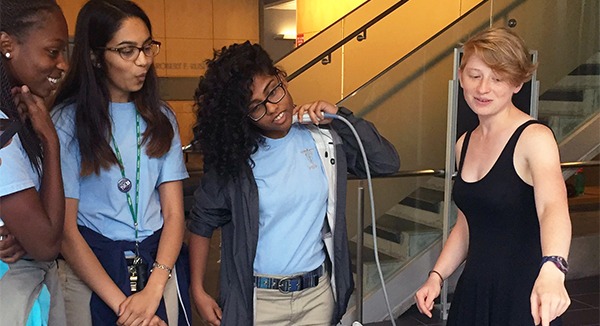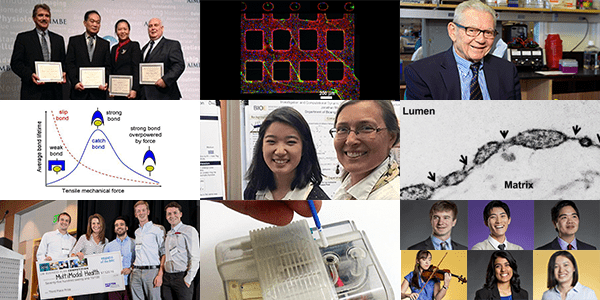Equity & Diversity at UW Bioengineering
 In Bioengineering, we are bound by a belief that diversity, health innovation, and social justice are inseparable. Each are impossible without the other. Diversity, equity and inclusivity is thus fundamental to our mission of inventing the future of medicine. We are continually examining our policies, procedures, and departmental climate, to ensure they are consistent with our values.
In Bioengineering, we are bound by a belief that diversity, health innovation, and social justice are inseparable. Each are impossible without the other. Diversity, equity and inclusivity is thus fundamental to our mission of inventing the future of medicine. We are continually examining our policies, procedures, and departmental climate, to ensure they are consistent with our values.
It has become clear that we need to better understand the structural barriers – especially structural racism – that have acted to make academic institutions exclusionary in the name of excellence. We recognize the need to provide training in Justice, Equity, Diversity, and Inclusion (JEDI) within our department so that it is relevant and accessible to the BioE community.
What Justice, Equity, Diversity and Inclusion means to the UW Bioengineering Community
Towards Justice, we believe that engineers must understand the social justice aspects of technology research and development practices, and are therefore including these topics in our curriculum. Towards Equity, we believe that admissions, hiring and retention practices must utilize best practices shown to overcome institutional and individual biases. Our Department values Diversity as individual differences (e.g., personality, prior knowledge, and life experiences) and group/social differences (e.g., race/ethnicity, class, gender, sexual orientation, country of origin, and ability as well as cultural, political, religious, or other affiliations)1. We seek to have our educational and research programs represent the diversity of our country. Towards Inclusion, the Department focuses on intentionally creating a welcoming environment for everyone, absent of negative feelings and experiences such as fear, insecurity, social tensions, and unaddressed microaggressions, as well as fostering active, intentional, and ongoing engagement with diversity (1,2). These efforts are multi-dimensional and include collaborations with numerous UW programs, recruitment efforts, policies, curriculum, practices, faculty/staff promotions, decision making, and mentoring and continuing education for members of our community.
The Departmental Commitment to Justice, Equity, Diversity and Inclusion (JEDI)

In Autumn 2020, we recognized that in spite of decades of good intentions and hard work to increase the diversity and inclusivity of our research and educational programs, our departmental culture, and policies were not aligned with our values. With input from staff and student leaders, the Bioengineering faculty voted to approve a substantial commitment to making change. Changes include increasing our level of expertise on anti-racism and inclusive teaching and mentoring, to provide similar expertise to our trainees through curricular changes and workshops, to redesign our hiring, admissions, retention, and support processes to remove structural as well as individual biases, and to engage in transparent communication with the Bioengineering community that includes opportunities for feedback. See the full draft of the 2020 UW Bioengineering JEDI Committment Letter (pdf).
Justice, Equity, Diversity and Inclusion (JEDI) Committee
The UW Bioengineering JEDI committee has been tasked with developing mechanisms and providing guidance to increase our department’s level of expertise on anti-racism and inclusive teaching and mentoring, and to provide similar expertise to our trainees.
JEDI Resources
Our resources page features links to student clubs and campus offices that offer support and networking opportunities centered around diverse identities. These organizations welcome all individuals who support their missions. Links for inclusive teaching and hiring are also included to aid each member of our community to develop or apply policies that eliminate or overcome individual and institutional biases, including racism. Finally, links are included to policies and JEDI activities in the College of Engineering, the School of Medicine, and the UW Seattle campus.
Feedback & Reporting Mechanisms
It is our goal that all members of the BIOE community feel included and supported. We want to highlight the resources available to you if you would like to provide feedback to improve the program or resolve a situation, or would like support in dealing with an incident of bias. We want to foster a community where members feel comfortable and empowered to report so we can address racist or otherwise problematic behavior. We have therefore provided links to different methods of providing feedback or reporting, and some information to help you decide which suits your purpose.
See also
Diversity at the University of Washington
UW Equity Focus, the UW’s hub for stories highlighting diversity and equity
In the News
UW Bioengineering hosts STEMMPrep outreach event
STEMM Prep is a highly competitive, selective national program that aims to increase diversity in science, technology, engineering math and medicine higher education programs and careers, and connect minority trainees with mentors, leaders and opportunities across the educational pipeline.
UW Bioengineering eNews Spring/Summer 2016
UW Bioengineering eNews offers an update on our advances in bioengineering research and education, and recognizes recent achievements of our students and faculty.




